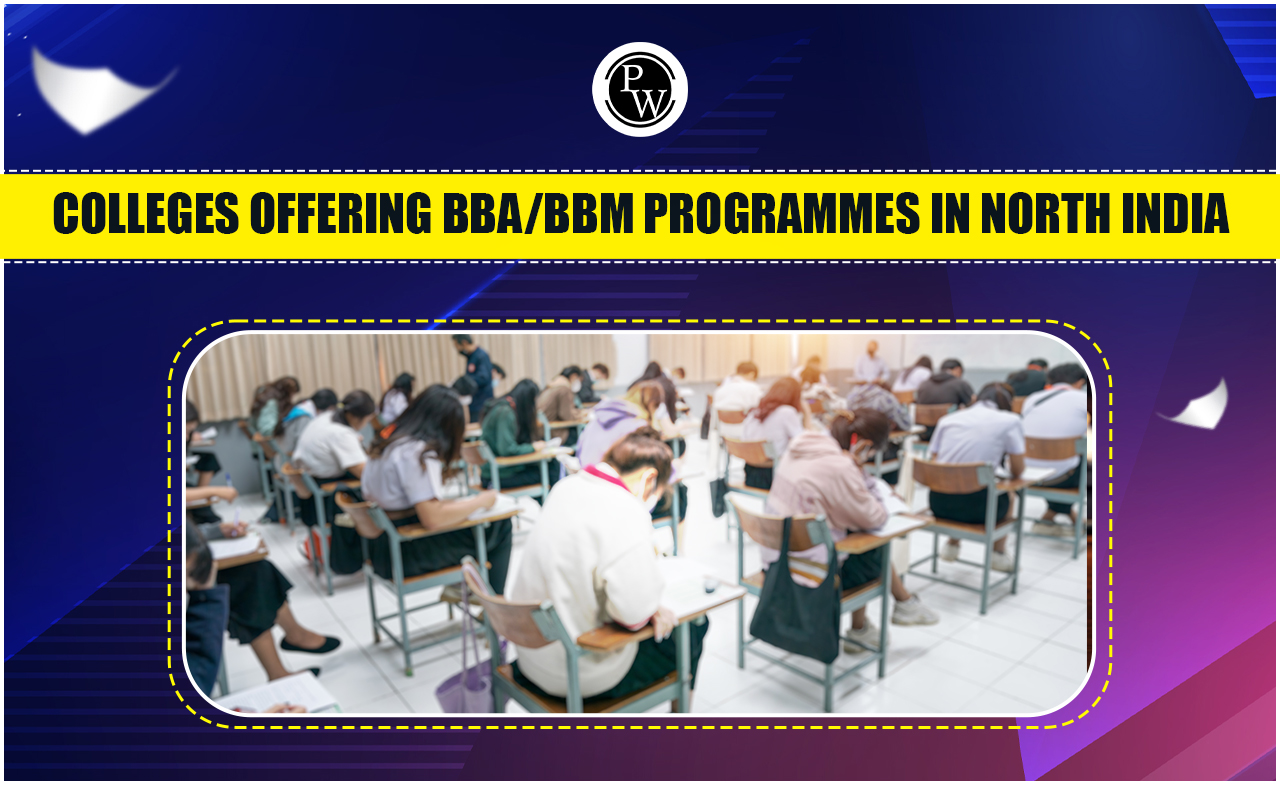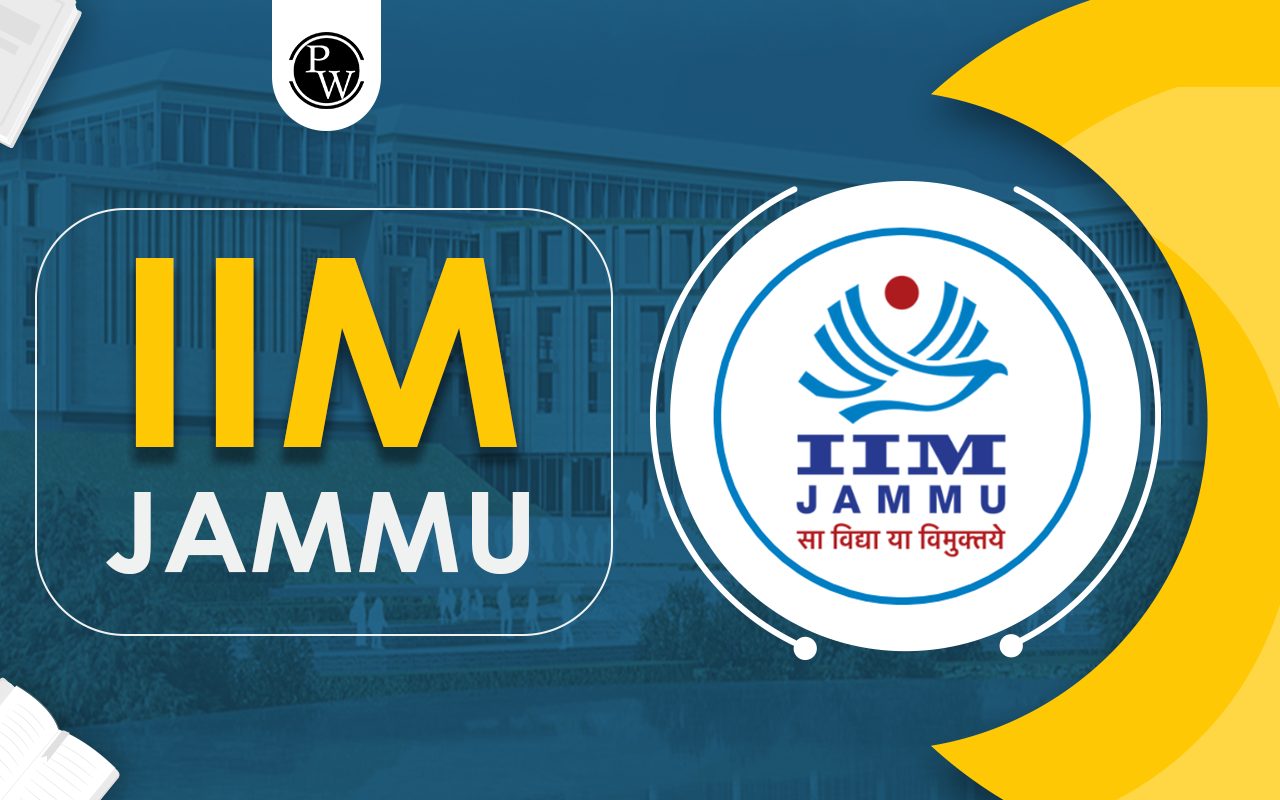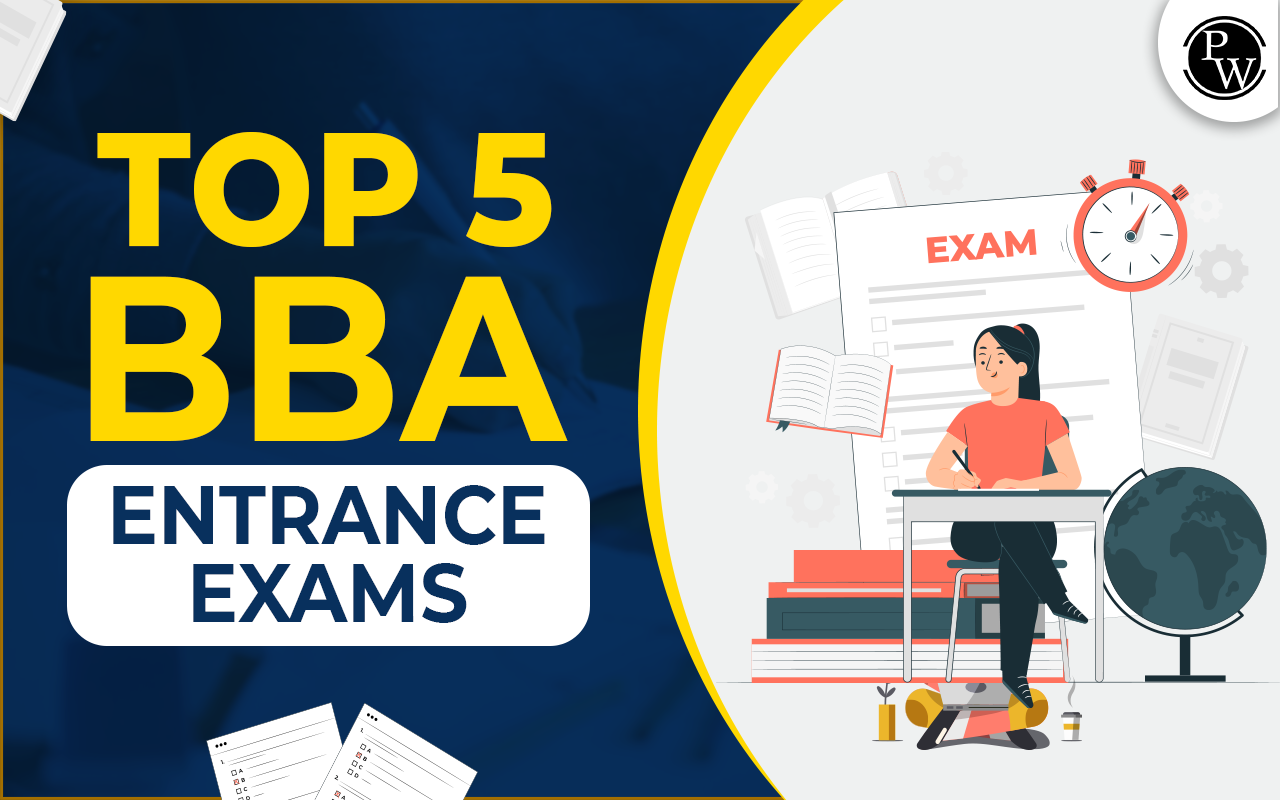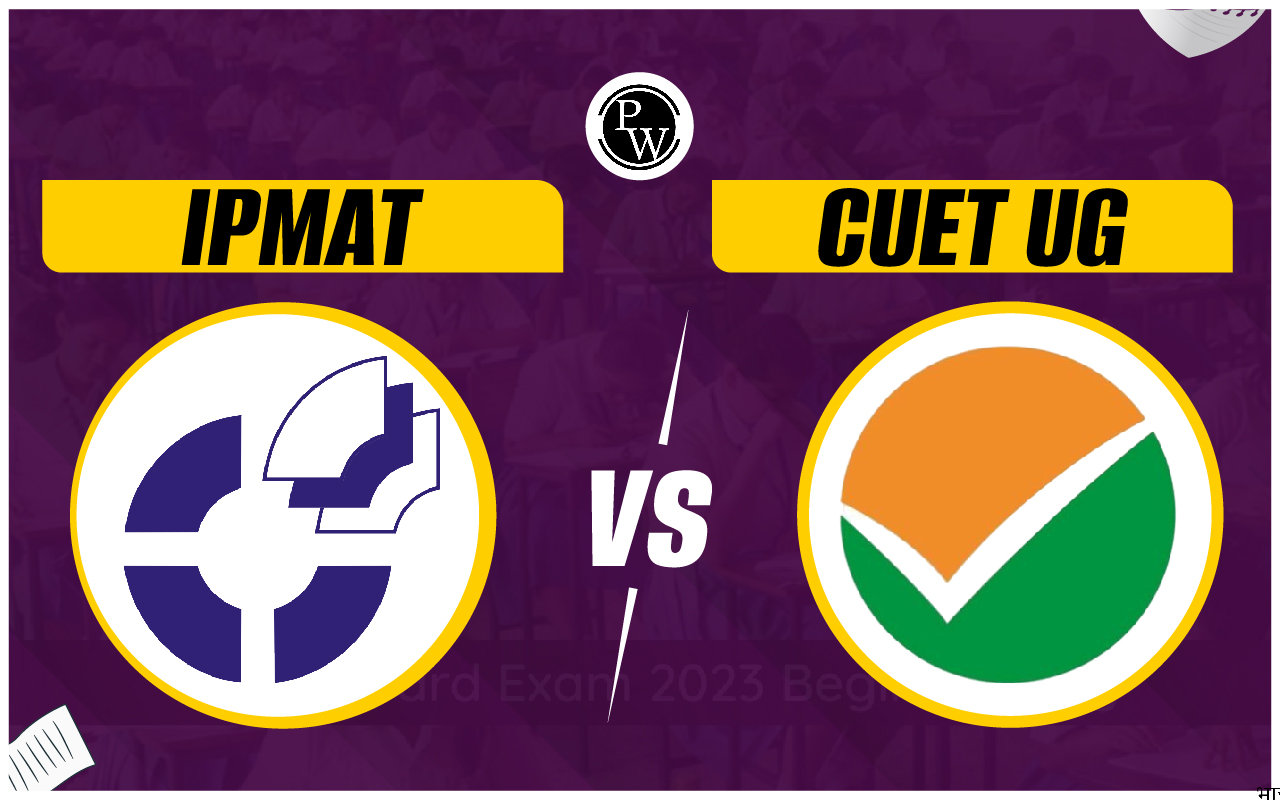
BBA vs B.Com: In India, BBA (Bachelor of Business Administration) and B.Com (Bachelor of Commerce) are two very popular undergraduate degree programs. They both focus on business and commerce but have some important differences.
- The BBA program focuses on practical management skills and applying business principles. It prepares students for careers in areas like marketing, finance, human resources, and entrepreneurship. On the other hand, B.Com provides a more theoretical education in subjects such as accounting, economics, finance, and other commerce-related topics.
What is BBA?
A Bachelor of Business Administration (BBA) is an undergraduate degree that offers students a solid foundation in business and management principles. The BBA curriculum covers various business aspects, including management, economics, communications, accounting, and marketing. Key Points about the BBA Degree:- Duration and Structure: The BBA is a 3-year program, typically divided into 6 semesters.
- Eligibility: Open to students from any academic background—science, commerce, or arts.
- Admission: Based on merit or entrance exams such as IPMAT, SET, NPAT, and AIMA UGAT.
- Course Fees: The average fee ranges from INR 60,000 to INR 2 lakhs.
- Curriculum: Includes core subjects like Principles of Management, Economics, Marketing, Finance, and Human Resource Management.
- Practical Learning: Incorporates internships, workshops, and guest lectures to provide real-world experience.
- Skills Developed: Students develop problem-solving, decision-making, leadership, communication, and entrepreneurship skills.
- Career Options: Graduates can pursue careers in finance, marketing, operations, consulting, and entrepreneurship.
- Further Education: Many students choose to pursue an MBA after completing their BBA for further specialization.
| BBA Exam Highlights | |
| Aspect | Details |
| Duration | 3 years (6 semesters) |
| Eligibility | Open to students from any academic background (science, commerce, arts) |
| Admission | Based on merit or entrance exams like IPMAT, SET, NPAT, AIMA UGAT, etc. |
| Course Fees | Average ranges from INR 60,000 to INR 2 lakhs |
| Core Subjects | Principles of Management, Economics, Marketing, Finance, Human Resource Management |
| Practical Components | Internships, workshops, guest lectures |
| Key Skills Developed | Problem-solving, decision-making, leadership, communication, entrepreneurship |
| Career Options | Finance, marketing, operations, consulting, entrepreneurship |
| Further Education | Many pursue MBA for specialization |
| Purpose | Equip students with business acumen and managerial skills for corporate or entrepreneurial success |
| Popularity | Highly sought-after for those interested in business and management career |
What is B.Com?
Bachelor of Commerce (B.Com) is a three-year undergraduate degree program that focuses on commerce, economics, and finance. It is one of the most popular courses among students in India. The full form of B.Com is Bachelor of Commerce.Eligibility Criteria for B.Com
- Candidates must have completed their 10+2 or equivalent examination from a recognized board with a minimum aggregate of 50% marks.
- Students from any stream (Commerce, Science, or Arts) can apply for B.Com, but those with Commerce background are preferred.
- Candidates must have studied English and Mathematics as core subjects.
Admission Process
Admission to B.Com programs is based on either merit or entrance examinations. Some of the popular entrance exams for B.Com are:- CUET (Common University Entrance Test)
- IPU CET (Indraprastha University Common Entrance Test)
- NPAT (National Postgraduate Admission Test)
- BHU UET (Banaras Hindu University Undergraduate Entrance Test)
Course Structure and Subjects
The B.Com program is divided into six semesters over three years. The subjects covered include:- Financial Accounting
- Business Law
- Company Law
- Income Tax Law and Practice
- Human Resource Management
- Principles of Marketing
- Environmental Studies
- B.Com (Hons)
- B.Com (Accounts and Finance)
- B.Com (International Business)
- B.Com (Computer Applications)
Career Opportunities and Salary
After completing B.Com, graduates can pursue various career options in fields like:- Accounting
- Finance
- Banking
- Insurance
- Taxation
- Marketing
- Human Resources
- Shri Ram College of Commerce (SRCC), Delhi
- Hindu College, Delhi
- Loyola College, Chennai
- Christ University, Bangalore
- St. Xavier's College, Mumbai
| B.Com 2024 Overview | |
| Features | B.Com Course Details |
| Name of the course | B.Com |
| B.Com full form | Bachelor of Commerce |
| B.Com course duration | 3 years |
| B.Com eligibility | Class 12 pass, irrespective of the stream. Commerce stream is preferred but not compulsory |
| B.Com subjects | Financial Accounting, Corporate Accounting, Business Law, Economics, Statistics, Business Mathematics, etc. |
| B.Com fees | Maximum colleges have annual fees < INR 1 lakh |
| B.Com selection process | Entrance-based and merit-based |
| B.Com entrance exams | CUET, IPU CET, NPAT, Jain University JET, Christ University Entrance Test, etc. |
BBA vs B.Com: Syllabus
The syllabi of BBA and B.Com programs have both similarities and differences. The key subjects covered in each program are:| BBA vs B.Com: Syllabus | ||
| Subject | BBA | B.Com |
| Financial Accounting | Financial Accounting I | Financial Accounting |
| Macroeconomics | Business Management Principles | Macroeconomics |
| Microeconomics | Economics I | Microeconomics |
| Quantitative Techniques | Business Mathematics & Statistics | Quantitative Techniques |
| Principles of Management | Language (English/Hindi) | Cost Accounting |
| Effective Communications | Financial Accounting II | Income Tax Law & Practice |
| India Socio-Political Economics | Business Laws | Marketing Management |
| Cost Accounting | Economics II | Financial Management |
| Environmental Management | Organizational Behavior | Auditing |
| Principles of Marketing | Computer Applications in Business | Indian Economy |
| Banking & Insurance | - | Management Accounting |
| Human Behavior & Ethics at Workplace | - | Project Work/ Dissertation |
BBA vs B.Com: Higher Education
Both BBA and B.Com degrees provide a strong foundation for further higher education, but the specific options differ between the two programs.Higher Studies after BBA
After completing a BBA degree, students have the following options for higher education: MBA (Master of Business Administration) The most common higher education path for BBA graduates is to pursue an MBA. BBA provides a solid base in business fundamentals, making BBA graduates well-prepared for MBA programs. Many top MBA programs actively recruit BBA graduates. Other Master's Programs BBA graduates can also pursue other master's degrees such as:- Master of Commerce (M.Com)
- Master of Finance (M.Fin)
- Master of Marketing (M.Mkt)
- Master of Human Resource Management (MHRM)
- Doctor of Business Administration (DBA)
- PhD in Management
Higher Studies after B.Com
After completing a B.Com degree, students have the following higher education options: Master of Commerce (M.Com) The most common higher education path for B.Com graduates is to pursue an M.Com degree. This allows them to specialize further in areas like accounting, finance, taxation, etc. MBA (Master of Business Administration) B.Com graduates are also eligible for MBA programs, though they may need to demonstrate relevant work experience or clear entrance exams. Other Master's Programs B.Com graduates can also pursue other master's degrees such as:- Master of Finance (M.Fin)
- Master of Accounting (M.Acc)
- Master of Financial Analysis (MFA)
- Master of Business Economics (MBE)
BBA vs B.Com: Job Opportunities
Both B.Com and BBA graduates have opportunities for entry-level jobs in banking, insurance, and finance sectors. BBA graduates can also pursue careers in fields like Hotel Management, Event Management, and Human Resource Management.- B.Com graduates have broader job prospects that are not limited by specific educational backgrounds, whereas BBA graduates have professional opportunities tailored to specific industries.
| BBA vs B.Com: Job Opportunities | ||
| Job Role | BBA | B.Com |
| Accountant | ✓ | |
| Financial Analyst | ✓ | |
| Investment Banker | ✓ | |
| Tax Consultant | ✓ | |
| Stock Broker | ✓ | |
| Insurance Consultant | ✓ | |
| Banker | ✓ | |
| Export-Import Manager | ✓ | |
| Finance Consultant | ✓ | |
| Auditor | ✓ | |
| HR Manager | ✓ | |
| Research Development Manager | ✓ | |
| Sales Executive | ✓ | |
| Accounting Manager | ✓ | |
| Marketing Executive | ✓ | |
| Managerial Executive | ✓ | |
BBA vs B.Com: Salary
When comparing the salaries of BBA and B.Com graduates, there are some key differences to consider. BBA graduates typically have a broader skill set that allows them to explore various management and administrative roles within organizations. This versatility can result in higher salary prospects for BBA graduates in the long run. The average starting salary for BBA graduates ranges from ₹3.75 LPA to ₹7.44 LPA, depending on factors like industry, job role, company size, and location. As BBA graduates gain more experience and assume higher-level positions, their earning potential increases significantly.| BBA vs B.Com: Salary | |
| B.Com Jobs | B.Com Salary (in INR) |
| Account Executive | 2.5 LPA |
| Business Executive | 3 LPA |
| Financial Analyst | 3.7 LPA |
| Tax Consultant | 4.5 LPA |
| Financial Consultant | 5 LPA |
| Accounts Manager | 5.8 LPA |
| Business Consultant | 9 LPA |
| BBA Jobs | BBA Salary (in INR) |
| HR Executive | 3.75 LPA |
| Marketing Executive | 2.91 LPA |
| Marketing Manager | 6.84 LPA |
| Sales Executive | 2.44 LPA |
| Entrepreneur | 7.44 LPA |
| Financial Advisor | 3.83 LPA |
| Public Relations Manager | 5.21 LPA |
BBA vs B.Com: Colleges
The top BBA colleges focus on practical management skills and real-world applications through projects and case studies. In contrast, the top B.Com colleges emphasize academic and theoretical knowledge in commerce, accounting and finance.| BBA vs B.Com: Colleges | ||
| Parameter | BBA | B.Com |
| Top Colleges |
|
|
| Eligibility | 10+2 or equivalent from a recognized board Age between 17-25 years | 10+2 with minimum aggregate as specified by college English and Maths as core subjects in some colleges |
| Course Fee | ₹80,000 to ₹2,50,000 per year | ₹20,000 to ₹50,000 per year |
Similarities Between BBA and B.Com
The BBA and B.Com courses share many similarities in their structure. Both cover various business topics, but with some differences in focus. BBA programs usually offer a broad curriculum that includes Finance, Marketing, Human Resources, and Management Information Systems. On the other hand, B.Com programs concentrate more on detailed understanding of Accounting, Finance, Economics, and other commerce-related subjects. Despite these differences, both BBA and B.Com aim to improve students' problem-solving, analytical, and communication skills essential for business. They both include core subjects like business management, marketing, and finance, although the depth of study can vary.| Similarities Between BBA and B.Com | |
| Similarity | Description |
| Duration | Both BBA and B.Com are 3-year undergraduate degree programs. |
| Eligibility | The eligibility criteria for both BBA and B.Com is the same - students must have completed 10+2 or equivalent from a recognized board. |
| Specializations |
Both courses offer multiple specializations that allow students to focus on specific areas of business and commerce.
Some common specializations include:
|
| Career Opportunities | Graduates of both BBA and B.Com have a wide range of career options in fields like management, finance, accounting, marketing, and entrepreneurship. |
| Higher Education | Both degrees provide a strong foundation for pursuing higher education programs like MBA, PGDM, CA, CS, CFA, etc. |
BBA vs B.Com: Which is Better? FAQs<span style=
What is the difference between BBA and B.Com?
BBA focuses on practical management skills and business principles. B.Com offers a theoretical education in commerce-related subjects like accounting and economics.
What is the BBA syllabus like?
BBA covers subjects such as management, economics, marketing, finance, and human resources. It includes practical components like internships and workshops.
What is the B.Com syllabus like?
B.Com covers financial accounting, business law, economics, and specializations like accounts and finance, international business, and computer applications.
What are the salary expectations after BBA?
Starting salaries range from ₹3.75 LPA to ₹7.44 LPA. With experience, it can go higher, especially in managerial roles.
What are the job opportunities after B.Com?
B.Com graduates can work as accountants, financial analysts, bankers, and in sectors like taxation, marketing, and human resources.
Talk to a counsellorHave doubts? Our support team will be happy to assist you!

Check out these Related Articles
Free Learning Resources
PW Books
Notes (Class 10-12)
PW Study Materials
Notes (Class 6-9)
Ncert Solutions
Govt Exams
Class 6th to 12th Online Courses
Govt Job Exams Courses
UPSC Coaching
Defence Exam Coaching
Gate Exam Coaching
Other Exams
Know about Physics Wallah
Physics Wallah is an Indian edtech platform that provides accessible & comprehensive learning experiences to students from Class 6th to postgraduate level. We also provide extensive NCERT solutions, sample paper, NEET, JEE Mains, BITSAT previous year papers & more such resources to students. Physics Wallah also caters to over 3.5 million registered students and over 78 lakh+ Youtube subscribers with 4.8 rating on its app.
We Stand Out because
We provide students with intensive courses with India’s qualified & experienced faculties & mentors. PW strives to make the learning experience comprehensive and accessible for students of all sections of society. We believe in empowering every single student who couldn't dream of a good career in engineering and medical field earlier.
Our Key Focus Areas
Physics Wallah's main focus is to make the learning experience as economical as possible for all students. With our affordable courses like Lakshya, Udaan and Arjuna and many others, we have been able to provide a platform for lakhs of aspirants. From providing Chemistry, Maths, Physics formula to giving e-books of eminent authors like RD Sharma, RS Aggarwal and Lakhmir Singh, PW focuses on every single student's need for preparation.
What Makes Us Different
Physics Wallah strives to develop a comprehensive pedagogical structure for students, where they get a state-of-the-art learning experience with study material and resources. Apart from catering students preparing for JEE Mains and NEET, PW also provides study material for each state board like Uttar Pradesh, Bihar, and others
Copyright © 2025 Physicswallah Limited All rights reserved.
Get App











